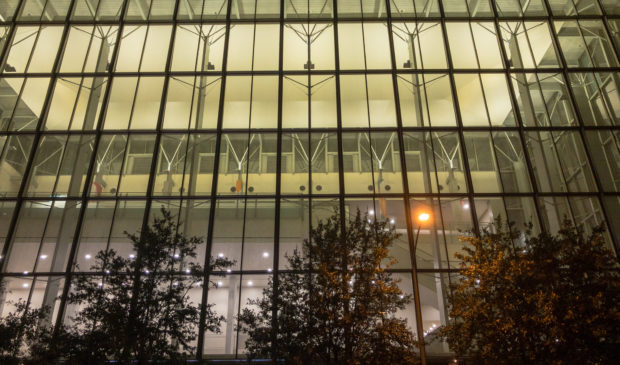Downtown Commission wants financing plan, study on convention center expansion
Monday, September 20, 2021 by
Chad Swiatecki With the city expected to begin entering into engineering and design contracts next spring related to a revised expansion of the Austin Convention Center, the Downtown Commission has asked for a detailed financing plan and market analysis for the public to review in advance of contract approvals.
At last week’s meeting, the commission voted 4-3 to approve a resolution asking City Council to have the city manager provide the funding plan as well as a detailed analysis of the convention and tourism industry four months ahead of making any financial commitments related to the expansion.
The commission also voted unanimously to form a working group that will gather information related to the expansion – an idea that was first proposed in 2015 and has been radically reimagined in the past year.
In June, Council approved the construction manager-at-risk methodology for moving forward with the expansion, which will take place entirely on the existing facility’s footprint rather than expanding westward as had been originally planned.
City staff is currently working on the request for qualifications and request for proposals from engineering and design firms interested in the project that was at one point expected to cost around $1.2 billion. The eventual new price tag would be covered over many years by revenue from the city’s portion of the Hotel Occupancy Tax, which was a rich source of income before the Covid-19 pandemic.
During a presentation about the state of convention and meeting business, Austin Convention Center Director Trisha Tatro said there are signs of promise to justify the expansion, especially since the center is in need of more exhibit hall space, which is the limiting factor that costs the facility much prospective business each year.
Most expansion scenarios, which will now require moving underground and increasing the center’s height, seek to provide 140,000 square feet of meeting space, 450,000 square feet of exhibit hall space and 120,000 square feet of ballroom space.
“There’s certainly been some change to the convention center industry and there are many studies that are being conducted, and the data we’re getting back prior to the Delta variant was very good,” Tatro said. “It seemed as though demand for business travel and for people attending in-person meetings was very high. I think people have taken a slight pause, but what we’re beginning to see in some of those studies moving forward with increased vaccinations is consumer confidence is coming back again.”
Commissioners asked staff for updates on a proposed 1 percent tax hotels had expressed a willingness to levy on themselves as a bargaining chip for the expansion, with much of that money planned to provide services for the city’s homeless population. Talks about that tax broke off last fall, but Tatro said there have been recent meetings, which could lead to the 60 percent approval of all downtown hoteliers to make the tax happen.
Commissioner Mike Lavigne said since the decision was made earlier this year to abandon the westward expansion because of an impasse over land acquisition, it’s time to reconsider the scope and feasibility of the whole project.
“I think if we’re going to start over on a new plan entirely we ought to explore other options for the convention center expansion, which might not be at the current site,” he said. “Maybe there’s other viable things that are more useful to our economy and to our tourism and convention industry that would be more helpful than the expansion they’re proposing now.”
Tatro said convention business is an important piece of the business plan for downtown hotels, which need those weekday bookings to complement tourism travel that is concentrated on weekends.
Commissioner Laura Templeton, who proposed the financial plan and market analysis resolution, said the lasting effects of the pandemic and other large-scale disruptions may put a permanent limit on meetings and gatherings.
“I have concerns because of Covid and what the world looks like after the pandemic,” she said. “The convention center industry seems to be a dying industry and I don’t think there’s as many trade shows … we have the Fairmont Hotel that can provide companies lots of space, food and liquor that they can get at the convention center.”
Photo made available through a Creative Commons license.
The Austin Monitor’s work is made possible by donations from the community. Though our reporting covers donors from time to time, we are careful to keep business and editorial efforts separate while maintaining transparency. A complete list of donors is available here, and our code of ethics is explained here.
You're a community leader
And we’re honored you look to us for serious, in-depth news. You know a strong community needs local and dedicated watchdog reporting. We’re here for you and that won’t change. Now will you take the powerful next step and support our nonprofit news organization?










